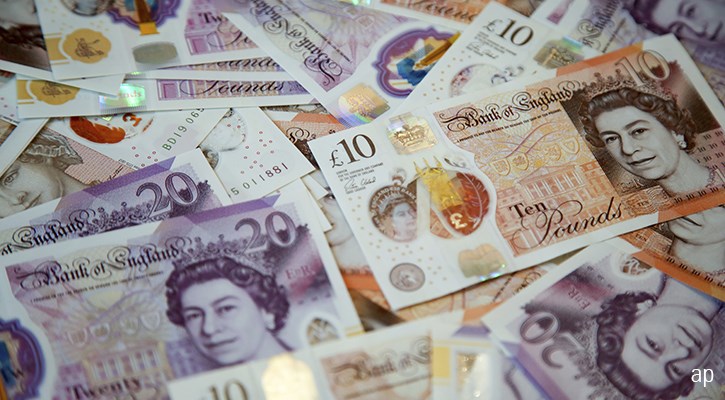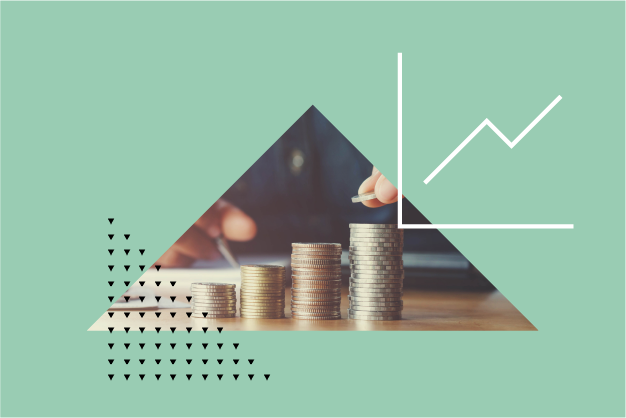
Dividends have taken their biggest hit since World War II, say experts at Link Group, but things should improve from here. The firm, which authors a quarterly dividend monitor report outlining the state of UK dividends, warns it could be five years before income payments from British businesses get back to where they were before the Covid-19 pandemic struck.
“We are in the middle of the worst recession in history, and that’s the backdrop against which companies have to decide what to pay their shareholders,” says Mark Baker, head of research at agency Team Spirit.
Dividends Drop in 2020
Link’s latest research shows that dividend payments to shareholders from UK plc plunged 44% in 2020 compared with the previous year, with investors losing out on almost £40 billion in income. The drop has taken UK dividends back to 2011 levels.
Kit Atkinson, head of capital markets at Link Group, says the UK market was badly hit because of its incredibly concentrated make-up, which sees around two-thirds of dividends paid come from just the largest 15 companies on the FTSE 100.
Some eight of those companies are in financials or energy/natural resources, both of which have been hard hit in the wake of the Covid-19 pandemic, though for different reasons. Banking stocks have been banned by regulators from paying dividends to shareholders, regardless of how strong their balance sheets are, while energy companies suffered as the oil price crashed in spring.
“The UK is uniquely dependent on these big payers, so it was uniquely hit by the crisis,” says Atkinson. “This concentration is nothing new but it does highlight the UK’s vulnerability and shows that we need to build some resilience into the system.”
He hopes a pick-up in the number of IPOs coming to the UK market – there are several slated for the coming months – could help bring some much-needed diversification to dividends.
Hope of a Recovery
And there is hope for a recovery. Baker says that cutting dividends has enable many companies to stay in better shape than they might otherwise have been able to. He points to oil giant Shell as one example. The business cut its dividend last year for the first time since WWII. “Investors took it in their stride, and it was actually a healthy step for the company because its pay out was looking unsustainable anyway,” he says.
And if investors were disappointed by dividends last year, they should bear in mind that 2020 wasn’t forecast to be a strong year anyway. A number of big special dividends from mining companies in 2019 meant the headline rate of dividends paid in the year was expected to be down 7%, with underlying dividends either flat or marginally down.
“Even before Covid-19, UK companies weren’t doing terribly well, so it was never going to be a vintage year,” says Baker. There were, however, a number of strong, defensive businesses that maintained their payouts in the year and there was still £61 billion paid out in the year.
Supermarket giant Sainsbury’s (SBRY) is one example – the firm repaid the rebate it was given on its rents and that cleared the way for shareholder payouts. And more than 30 UK firms were able to restore their dividends in the fourth quarter of the year, after suspending or cancelling pay outs at the height of the market sell-off. “We’ve also had good news from some of the housebuilders, which benefited from the stamp duty holiday,” adds Baker.
Atkinson points out, too, that most investors were understanding of companies having to cut dividends, given the situation, with many even taking the opportunity to invest more in their favourite stocks when share prices fell in the March crash.
UK Market Still Looks Attractive
For now, though, the yield on the UK stock market is set to be around 3% this year, taking investors back to levels last seen in 2007, before the financial crisis. The strong recovery of many stocks along with dividend cuts has compressed the overall yield of the FTSE, though it’s worth pointing out that it still looks set to yield more than its peers, the US, Japan and China, to name a few.
For companies looking to reinstate shareholder payouts, the coming months will be a careful balancing act. While some will be keen to get back to business as usual, others may take the opportunity to rebase their dividends to more sustainable levels and at least give investors confidence their income is secure.
And then there is Brexit to consider, something which is likely to have a greater impact of small- and mid-cap companies which may be less adept at navigating complicated cross-border transactions than their large-cap counterparts.
Baker adds: “But more important than Brexit is the health of the UK economy, and hopefully government support can help keep companies as strong as possible while we wait for the economy to re-open.”




























